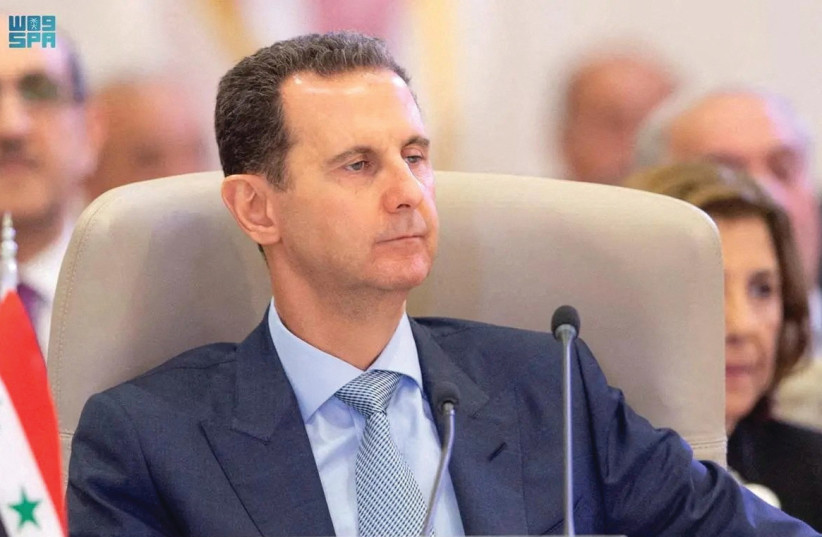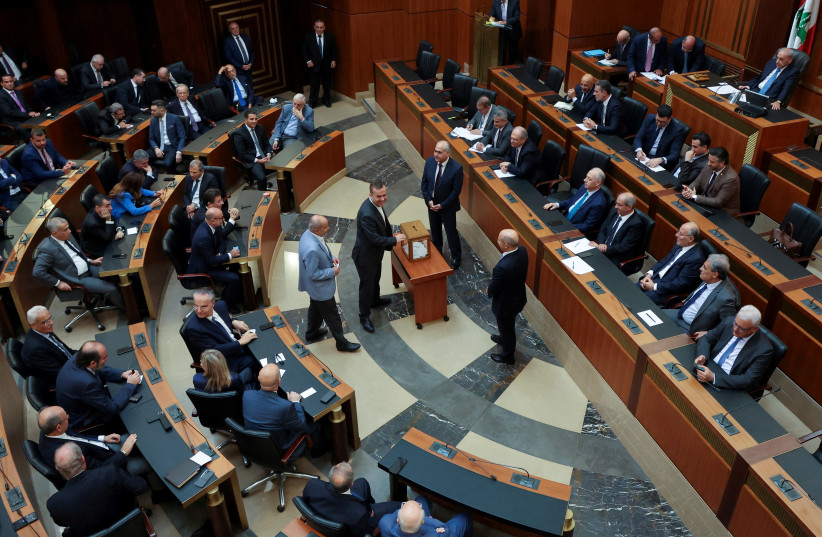Hezbollah is aiming to subtly take control of Beirut international airport according to a new report authored by Tal Beeri.
“Hezbollah's major objective at the moment is to take control of the international airport in Beirut,” said the report.
This would constitute another step in the terror organization's attempt to control border crossings and spread its influence in Lebanon. The report was compiled by the Alma Research and Education Center, titled ‘How is Hezbollah Attempting to Seize Control of Beirut's International Airport’.
Hezbollah has increased its power and influence in Lebanon over the last decades. In addition, there are currently tensions on the northern border with Hezbollah.
The Iranian-backed Syrian regime has recently been reintegrated into the Arab League. The issue of the airport, therefore, comes in the context of many slow changes in the region.

“The numerous airstrikes on Syrian territory against military equipment and weaponry delivered to Hezbollah via the Iranian corridor are driving Iran and Hezbollah to tighten their grip on the relevant alternatives. Beirut's international airport has long provided an alternative to the land corridor via Syria for smuggling military equipment and weapons for Hezbollah.” said the report.
The terrorist group wants more control of the airport and other crossings because of its involvement in various activities such as smuggling of fuel and drugs; as well as weapons and military equipment, the report notes.
The Alma Center has produced a number of recent important reports about security threats in areas abutting northern Israel. This includes a focus on groups like Hezbollah and Iran’s involvement in the region.
Hezbollah uses civilian cover
Hezbollah uses civilian cover to achieve its objectives. “This objective is being personally pursued by Hashem Safi al-Din, the head of the Hezbollah Executive Council, and Haj Fadi (Muhammad Jaafar Qusayr), the leader of Unit 4400 (Hezbollah's smuggling unit),” the report says. It goes on to note that Hezbollah works through prominent individuals to achieve its goals.
“For example, in the Lebanese government, Hezbollah Minister of Public Works and Transportation Ali Hamieh attempted to commence an initiative to construct a new terminal at the airport. Hezbollah was driving the move, and the terminal's development would have been entirely under Hezbollah's supervision.” Even though this project may not pan out, Hezbollah has other initiatives.
“According to our assessment, private businesses and civilian companies associated with Hezbollah act as proxies and rents properties in and near the airport for Hezbollah,” Beeri writes in the Alma report. “As a result, Hezbollah is attempting to create a foothold in and around the airport. In fact, Hezbollah is seeking to build a ‘parallel airport’ for itself that will serve it without intervention from outside sources.”

The parallel system that Hezbollah uses, hollowing out Lebanon and then filling it with its own initiatives is a form that Iran has practiced in other areas of the region, such as Iraq. This enables Iran to help Hezbollah control the “supply chain of equipment and weapons” that Iran sends to Lebanon, the report notes. Hezbollah has stockpiled masses of missiles, rockets, drones, and other materials this way.
The report says that “from January 2023 till the present, 76 direct flights have been operated from Iran to Beirut Airport.” Mahan Air, Iran Air, and Meraj all served as carriers on these flights. Mahan Air provides a “civilian cover platform for smuggling military equipment,” the report notes. “Iran Air, also known as a platform used by the IRGC, has carried out 35 direct flights to Beirut from January 2023 and Meraj Airlines has carried out 20 flights.”
Of great alarm is also the claim in the report that “Hezbollah exploits the resources and capabilities provided by the United States and Western nations as aid to the Lebanese army.” The group uses the Lebanese army’s communications systems, for instance. The terror group also “recruited officers from the Lebanese Air Force and Navy in order to gain access to military radars provided, among other things, by the United States to the Lebanese army.” The report points to an officer recruited by Hezbollah that “allows Hezbollah access to the airport's aerial radars.”
Few constraints on Hezbollah's power
The overall picture is of a Hezbollah that has few constraints on its slow growth in power in the country as it infiltrates more key areas of Lebanon. Control over border crossings and the ability to coordinate with Iran for commercial flights to serve as cover for moving weapons is a major threat. “Hezbollah recruits and manages important airport personnel for its needs through its security unit,” the report says.
“As of today, Lebanon's international airport is not solely under the administration of the Lebanese government. Hezbollah is a full partner in airport control. Hezbollah is aiming to build a ‘parallel airport’ that will serve it without interference from outside sources,” the researcher concludes.
The role and controversy regarding Hezbollah and the airport is not new. In January a report at Le Orient-Le Jour said that Hezbollah was concerned about a new security chief appointed at the airport. Last year reports indicated tensions with Israel regarding the airport issue. At the time it was said that IRGC flights might be moving weapons to Beirut via the airport. The Alma Center also spotlighted Mahan Air's potential role in transporting weapons in December of last year.
